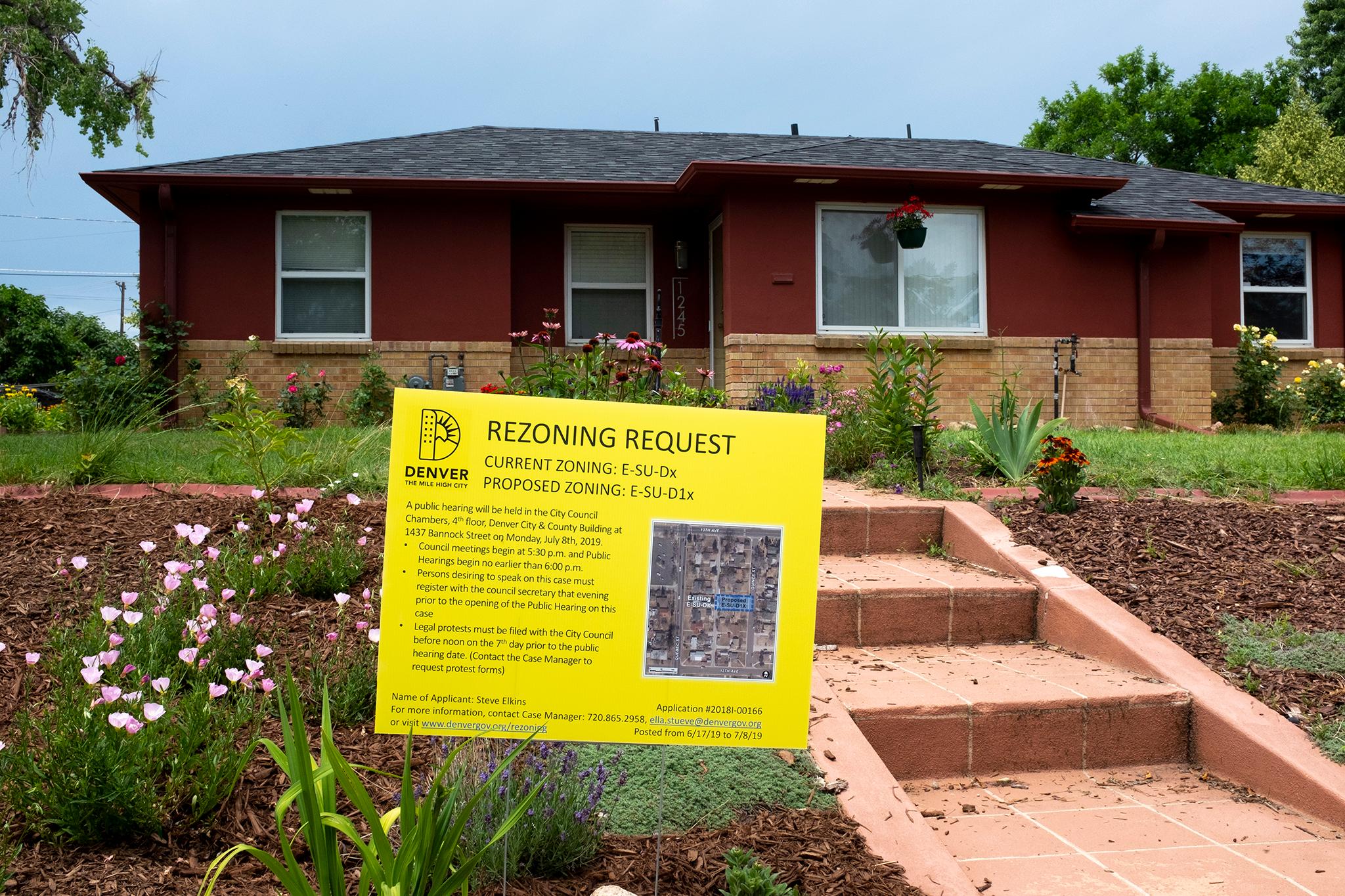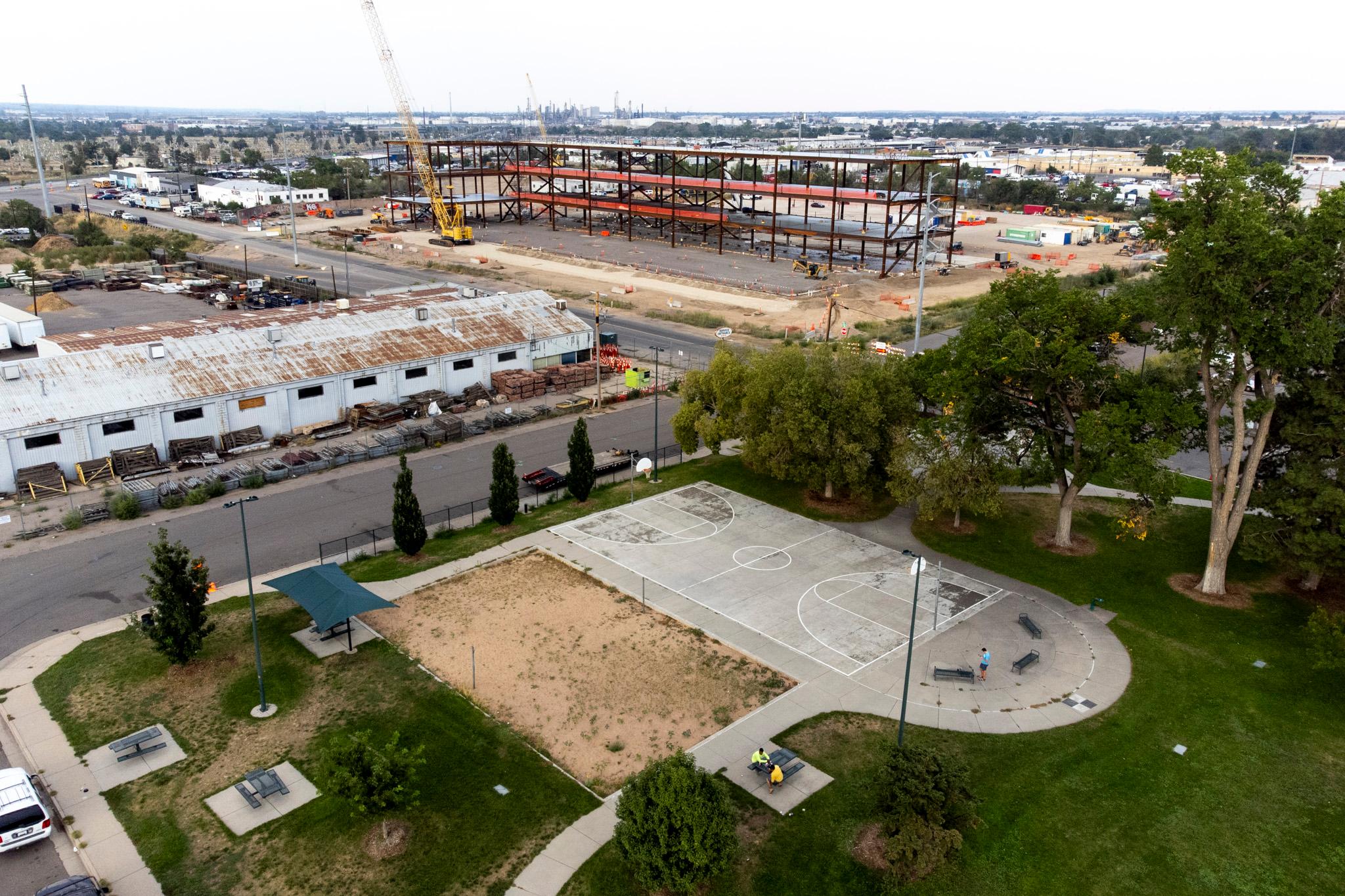An East Colfax neighborhood dispute over an accessory dwelling unit turned into an opportunity for City Council to reaffirm its support of such tiny homes as part of the answer to Denver's affordable housing crisis.
Council voted 13-0 to grant Steve Elkins his request to rezone his lot at 1245 Quince so he can build one of those "cute little houses," as a speaker at Monday's council meeting described what others might call a granny flat. Elkins's plan was applauded by several neighbors, including one who said it could lead the way for others.
But the woman who owns the house next door, Ellen West, was adamantly against it. In a letter to the city, she said part of her opposition stemmed from fear that a precedent would be set that would threaten "a stable, quiet, affordable Denver neighborhood."
West does not live in the house, which she said she bought looking ahead to her retirement. Her granddaughter lives in the house now.
Both Elkins and West spoke at Monday's meeting. Elkins called for "gentle density." West bristled at the idea of piecemeal changes to her neighborhood, saying it was necessary "to preserve the meaning of zoning codes."
The goals for Denver set out in the Blueprint Denver plan adopted by City Council earlier this year included an embrace of accessory dwelling units, or ADUs. But citywide zoning rules have not yet been adopted on ADUs.
Planners see ADUs as a way to increase housing stock and allow homeowners, particularly low-income homeowners who might be struggling with rising property taxes and other costs, to increase their earnings. The West Denver Renaissance Collaborative has developed a wealth- and home-building pilot program around those ideas. In May, City Council approved an agreement that provides $500,000 for loans of up to $25,000 each or low-income residents participating in the West Denver pilot to put towards building an ADU. Under the program, homeowners must lease the ADUs at below-market rates to people who meet income restrictions.
Councilman Rafael Espinoza said that while ADUs can sometimes be a source of problems, "having these units is important to the health of the city."
The rezoning hearing drew ADU proponents, some wearing T-shirts emblazoned with "YIMBY" -- for "yes in my backyard" -- from all over the city.
Councilman Albus Brooks apologized to Elkins for the time he has had to spend getting a rezoning, even before embarking on permitting.
"We talk a lot about affordable housing," Brooks said. "But we have archaic permits and processes to get us there."
Elkins proposed his ADU on his own, not part of the West Denver or any project. He said in his application he might provide his granny flat to relatives or rent it out. Elkins own home and garage takes up about 1,000-square feet of a 7,320-square-foot lot.
Elkins is a Community Planning and Development associate city planner who works with commercial businesses obtaining zoning permits. The department said he does not work on rezoning requests and that his ADU application received no special treatment.
Elkins first began talking to neighbors about his plans in late 2018. Supporters included the East Colfax Neighborhood Association, which submitted a letter to the city saying its members "agree that accessory dwelling units can be an important component of a development plan that works against undue displacement of residents."
Tim Roberts, president of the registered neighborhood organization, also addressed the council meeting to underline support.
Logan Fry, who lives near Elkins, wrote the city that "our neighborhood is changing and Mr. Elkins is leading the way to allow the rest of us to protect ourselves and our property from the adverse effects of gentrification by allowing us to tap the capital in our land."
But West questioned whether ADUs could increase affordability. She also told the city in her letter that ADUs might be used as short-term rental properties, which she said would decrease safety "because residents would not easily know whether persons were renters who belonged or criminals casing property."
West refused a city offer of mediation.
Another near neighbor, Amy Mattern, also was opposed, telling council members Monday that her concerns also included increased traffic and pressure on parking,
In the end, 10 members of City Council had to approve Elkins's application. That super-majority requirement is triggered in Denver if protests are received by the city via petition signatures by the owners of 20 percent of the total land area within 200 feet of the perimeter of the area affected by the proposed zoning change. In this case, eight neighbors protested, according to Community Planning and Development, though council members raised questions about whether the requirement was met.













